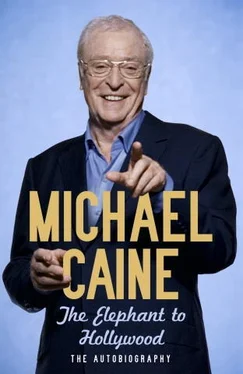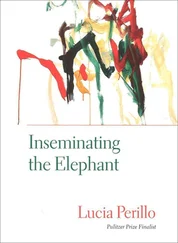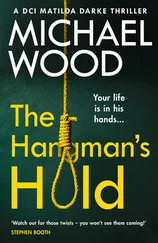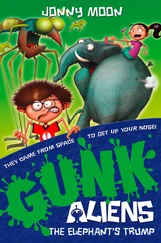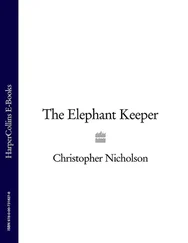Michael Caine - The Elephant to Hollywood
Здесь есть возможность читать онлайн «Michael Caine - The Elephant to Hollywood» весь текст электронной книги совершенно бесплатно (целиком полную версию без сокращений). В некоторых случаях можно слушать аудио, скачать через торрент в формате fb2 и присутствует краткое содержание. Город: London, Год выпуска: 2010, ISBN: 2010, Издательство: Hodder, Жанр: Биографии и Мемуары, на английском языке. Описание произведения, (предисловие) а так же отзывы посетителей доступны на портале библиотеки ЛибКат.
- Название:The Elephant to Hollywood
- Автор:
- Издательство:Hodder
- Жанр:
- Год:2010
- Город:London
- ISBN:978-1444700015
- Рейтинг книги:4 / 5. Голосов: 1
-
Избранное:Добавить в избранное
- Отзывы:
-
Ваша оценка:
- 80
- 1
- 2
- 3
- 4
- 5
The Elephant to Hollywood: краткое содержание, описание и аннотация
Предлагаем к чтению аннотацию, описание, краткое содержание или предисловие (зависит от того, что написал сам автор книги «The Elephant to Hollywood»). Если вы не нашли необходимую информацию о книге — напишите в комментариях, мы постараемся отыскать её.
The Elephant to Hollywood — читать онлайн бесплатно полную книгу (весь текст) целиком
Ниже представлен текст книги, разбитый по страницам. Система сохранения места последней прочитанной страницы, позволяет с удобством читать онлайн бесплатно книгу «The Elephant to Hollywood», без необходимости каждый раз заново искать на чём Вы остановились. Поставьте закладку, и сможете в любой момент перейти на страницу, на которой закончили чтение.
Интервал:
Закладка:
By now the war had reached even sleepy Norfolk. With the entry of America, we found ourselves living in the middle of seven huge US Air Force Bomber bases and witnessing the war in the air at first hand. As we watched from the ground we could see German planes attacking our own fighters – and we could see the deadly results as plane after plane spiralled out of the sky and crashed in the fields around us. I had never connected the fighting I saw in the movies with real life; now, when we reached the downed planes, often ahead of the police or Home Guard, I saw dead bodies for the first time.
Hitler may not have invaded us, but the Americans certainly did. The towns and villages of Norfolk were overrun by gum-chewing, laid-back, good-humoured American airmen who seemed to think everything was a joke and amazed the locals with their generosity and sense of fun. Everything I knew about America I had learnt from my weekly cinema visits and these brave young men were the first real Americans I’d met. It was the beginning for me of a love affair with America and all things American that has lasted the whole of my life.
I wasn’t only getting an education through the cinema. I’d been very lucky in my elementary school teacher: a butch, chain-smoking, whisky-drinking, completely inspirational woman called Miss Linton. Looking back, I can see that she was probably a lesbian and that I perhaps represented the son she’d never have. She saw something in me, encouraged me to read widely, taught me maths through the unusual medium of poker, and one memorable day came flying across the village green in her academic gown to our house to give me the news that I’d passed the London scholarship exam to grammar school. I was the first child from the village school ever to do so. By now my mother had got a job as a cook and we had moved into the servants’ quarters of a big house called The Grange, on the edge of the village. After the Elephant and Castle it was unimaginable luxury – electric light, fully equipped kitchen, endless good food (we got the leftovers) and hot and cold running water. There was even a huge piano in the family drawing room, shaped like a harp on its side – nothing like the upright boxes I’d seen in the saloon bars in the London pubs.
The house was owned by a family called English whose money came from a timber firm – Gabriel, Wade and English. I’d always remembered the name, and years later Shakira and I decided to take a trip down the Thames on a sunny evening and we went past an old warehouse and I was surprised to see that name painted on the side. I think I’d somehow thought it wasn’t a real firm. Mr English was very kind to me and offered to pay for me to go to school and university, if I didn’t pass the scholarship. I was a funny little boy, quite lonely, but people would catch on to me somehow and Mr English used to take me through to the main house and give me tea in the drawing room. One day, I thought, I’m going to have all this – and the house I live in now in Surrey is really his home: I have replicated his life. It’s even extended to food. Because we used to eat the leftovers from the Englishes’ dinners, I got used to eating game – pheasant and partridge – as a young boy and that’s had a lifelong effect on me. I eat like a country squire these days – albeit a country squire who’s been to France a lot!
As you get older, you find yourself doing many things for what you are aware will probably be the last time. A couple of years ago I went back to North Runcton with my daughter Natasha. I had been invited to unveil a blue plaque on the village school where I had acted in public for the first time. We were given a great welcome and shown round the impressively modernised buildings, and then we drove to The Grange where the current owner let me in through the front door for the first time. The house, like the school, had changed – the quarters where we had lived were now a double garage – but the two bay windows in the drawing room looking out over the fields were just as they were when Mr English used to have me in for afternoon tea. As I stood there, I realised that one major part of me had been shaped in this room, while another had been shaped by the school we had just visited. And as we drove away from North Runcton, I was conscious of saying goodbye to my childhood and, although they were long dead, once again to the people there who had been such an important part of it.
So, thanks to Miss Linton – and if I’d failed, it would have been thanks to Mr English – I got to go to grammar school. The London school that had been evacuated nearest to us was a mainly Jewish school called Hackney Downs Grocers. I’d never met a Jewish person before but my mother informed me that my father’s bookmaker was Jewish and so was Tubby Isaacs, the man who used to sell Dad his jellied eels. Both these men were fat. Mum also said that Jews were clever because they ate a lot of fish (I hated the stuff my father used to bring home from the market before the war) and that most Jews had money, which made sense to me since Dad lost most of his at the bookies and spent what was left on jellied eels. So I was a bit surprised to get to my new school and find that although they were clever, the boys were not fat and they weren’t rich – in fact they were just like me. We even shared a name. The name Maurice was a bit unusual round the Elephant but at Grocers everyone seemed to be called Maurice. In fact a lot of them had Morris as a surname, too. Very confusing. The only thing that set them apart from the kids I’d been to school with before was that they worked hard. They got this attitude from their parents. My best friend Morris’s (I’m not making his name up) parents were obsessed with the importance of his education and, yes, they ate fish at practically every meal.
We got back to London in 1946 and it was a miserable time. Many of the familiar streets of my childhood had literally disappeared and the landscape was littered with the rubble of collapsed buildings. When my father was demobbed, having fought right through the war from El Alamein to the liberation of Rome, the council rehoused us in a pre-fabricated house. Years later, when I was in the movie Battle of Britain , I had lunch with General Adolf Galland, the former head of the Luftwaffe, who was acting as technical advisor. I didn’t know whether to hit him or thank him for his successful slum clearance programme, but it wouldn’t have mattered: he didn’t seem to have realised that the Germans had lost.
The prefabs, as they were known, were intended to be temporary homes while London was rebuilt, but we ended up living there for eighteen years and for us, after a cramped flat with an outside toilet, it was luxury. Outside, though, there was a constant smell of burning rubbish in the air as the authorities cleared the bomb sites, compounded by the thick smog produced by the coal fires. The shops were empty, everyone was queuing for the few goods that were available – and my only escapes were the cinema and the public library. For young working-class boys like me, America was really exciting. British war films were always about officers; American films were about enlisted men. British authors wrote about officers; in the library I discovered Norman Mailer’s The Naked and the Dead and James Jones’ From Here to Eternity. Here at last were stories about the experiences of soldiers I could identify with.
I may have been a keen member of the public library, but I was not enjoying school. I’d had to move from Hackney Downs Grocers to a school nearer to us and it did not go well, either for the staff at Wilson’s Grammar School or for me. The only subject I was remotely interested in was French – and that was only because of Mam’zelle, whose short skirts offered a flash of thigh when she perched on the front of her desk – and I began to devote more and more of my creative energy to playing truant. Mum used to give me money for lunch each day and whenever I could I would spend half of it on a bar of chocolate to keep starvation at bay and the rest on a ticket to the Tower cinema in Peckham.
Читать дальшеИнтервал:
Закладка:
Похожие книги на «The Elephant to Hollywood»
Представляем Вашему вниманию похожие книги на «The Elephant to Hollywood» списком для выбора. Мы отобрали схожую по названию и смыслу литературу в надежде предоставить читателям больше вариантов отыскать новые, интересные, ещё непрочитанные произведения.
Обсуждение, отзывы о книге «The Elephant to Hollywood» и просто собственные мнения читателей. Оставьте ваши комментарии, напишите, что Вы думаете о произведении, его смысле или главных героях. Укажите что конкретно понравилось, а что нет, и почему Вы так считаете.
